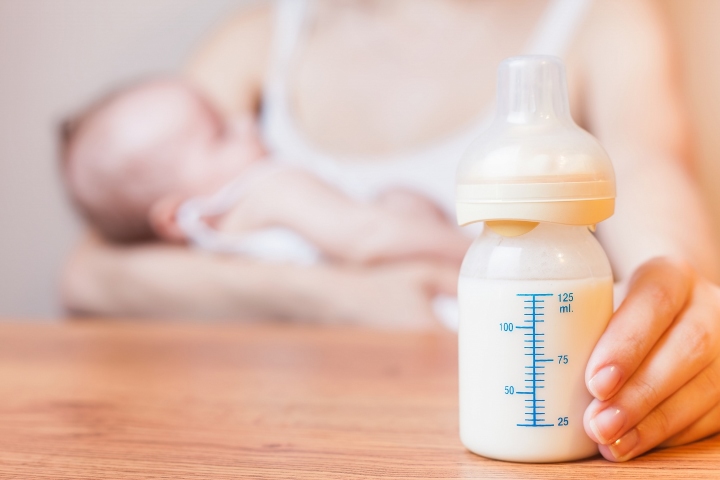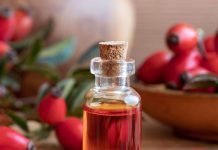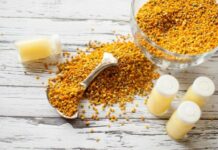Breastfeeding is a crucial stage in a mother’s life, as it provides her child with the necessary nutrients for growth and development. However, some breastfeeding mothers may encounter a problem with their breast milk, specifically high-lipase milk. High-lipase milk is a condition where the enzyme lipase, which is responsible for breaking down fats in breast milk, is too active, causing the milk to have a soapy or rancid odour and taste. This article will discuss the causes, effects, and tips to manage high-lipase milk.
In This Article:
- Causes of High Lipase in Breast Milk
- Does High-Lipase Milk Affect The Baby’s Health?
- Can You Test Lipase in Breast Milk at Home?
- Tips to Mask Off Breast Milk Smell and Flavour
Causes of High Lipase in Breast Milk
The exact cause of high-lipase milk is still unknown, but some factors may contribute to its development.
Genetics
One of the major causes of high lipase in breast milk is genetics. Some women are genetically predisposed to having high levels of lipase in their breast milk. If you have a family history of high lipase in breast milk, it is likely that you will also experience this.
Storage
The way you store your breast milk can also cause high lipase levels. Milk that is stored at room temperature for too long may have increased levels of lipase. Similarly, milk that is stored in a refrigerator for too long may also have increased levels of lipase. To prevent this, it is important to store your breast milk properly. Milk that will not be used within 24 hours should be stored in a freezer.
Time
The longer breast milk is stored, the more likely it is to have high levels of lipase. This is because lipase is an enzyme that naturally occurs in breast milk. Over time, the lipase enzymes will break down the fats in the milk, causing it to become rancid.
Diet
Your diet can also affect the lipase levels in your breast milk. Consuming certain foods, such as garlic, onions, and spicy foods, can increase the lipase levels in your breast milk. If you notice that your breast milk has a sour or soapy taste, you may want to cut back on these foods to see if it helps.
Stress
Stress can also cause high lipase levels in breast milk. When you are stressed, your body produces more lipase enzymes. This can cause your breast milk to become rancid and unappetizing to your baby.
Medication
Certain medications, such as antibiotics and some antidepressants, can also affect the quality of your breast milk. If you are taking any medication, speak with your doctor or lactation consultant to determine if it may be affecting your breast milk.
Does High-Lipase Milk Affect The Baby’s Health?
The short answer is no. High-lipase milk does not have any harmful effects on the baby’s health. It is safe for babies to consume and won’t harm their health in any way.
However, some babies may refuse to drink it due to its unpleasant odour and taste. In some cases, babies may experience diarrhoea or other gastrointestinal issues, but this is not directly caused by high-lipase milk. If your baby is experiencing any health issues, it is best to consult your paediatrician.
Can You Test Lipase in Breast Milk at Home?
Yes, you can test the lipase activity in your breast milk at home. Here’s how:
- Express a small amount of milk into a clean container.
- Let the milk sit at room temperature for a few minutes.
- Smell the milk. If it has a soapy or rancid odour, then it has high lipase activity.
- If you want to be more precise, you can do a taste test. Take a small sip of the milk and see if it tastes soapy or rancid.
Tips to Mask Off Breast Milk Smell and Flavour
If you have high-lipase milk and your baby is refusing to drink it, there are some tips you can follow to mask the smell and flavour.
Scald the Milk
Scalding the milk before storing it can help reduce the lipase activity. It also helps to eliminate the enzymes that cause the milk to develop an unpleasant odour and taste. To scald the milk, heat it in a pan until bubbles start to form around the edges, but do not let it boil. Then cool it down and store it as usual.
Use Breast Milk Storage Bags
Breast milk storage bags are a great way to mask off the smell and flavour of your breast milk. These bags are designed to keep your milk fresh and free from any odors. You can store your milk in these bags and then transfer it to a feeding bottle when it’s time to feed your baby. This way, your baby won’t be able to smell or taste any of the flavours that might be in your milk.
Change Your Diet
One of the simplest ways to mask the smell and flavour of your breast milk is to change your diet. Certain foods can make your breast milk taste and smell differently. For instance, garlic, onions, and spicy foods can make your breast milk taste and smell strong. Instead, try eating more fruits and vegetables, which can give your breast milk a sweet and pleasant taste.
Keep Your Breast Pump Clean
Finally, it’s important to keep your breast pump clean if you want to mask off the smell and flavour of your breast milk. Bacteria and other germs can grow in your breast pump and transfer to your milk, giving it an unwanted smell and flavor. Make sure to clean your breast pump after every use and sterilise it regularly. This way, you can ensure that your breast milk remains fresh and free from any unwanted flavours.
Conclusion
High-lipase milk is a common condition that affects some breastfeeding mothers. While it does not have any harmful effects on the baby’s health, it can cause the milk to have an unpleasant odour and taste, which can make the baby refuse to drink it. However, there are some tips and tricks you can follow to manage high-lipase milk and ensure that your baby is getting the necessary nutrients for growth and development. If you have any concerns about high-lipase milk, it is best to consult your paediatrician.
Sources :
1. https://www.healthline.com/health/breastfeeding/high-lipase-milk#definition













